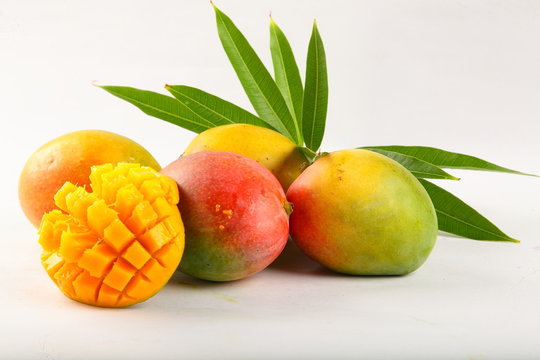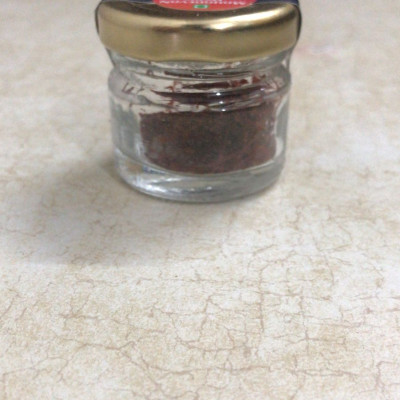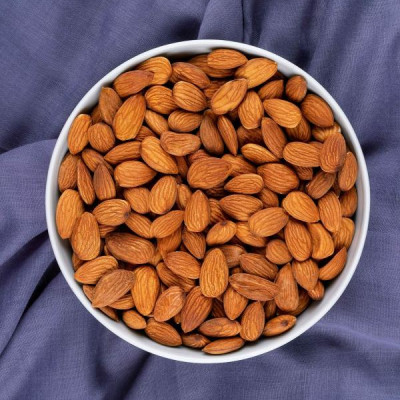Fruits
Mangos Alphonso: Unveiling the Majestic Reign of the King of Mangoes

INTRODUCTION
Welcome to the world of Alphonso mangoes, where the senses come alive with the tantalizing aroma and luscious taste of the king of mangoes. In this comprehensive article, we will delve into the exquisite qualities, rich history, and unmatched appeal of the Alphonso mango. We aim to provide you with a detailed understanding of this tropical delight and equip you with the knowledge to truly appreciate its magnificence.
ORIGINS AND REGIONS
- Origin: Mangos Alphonso originated in the Ratnagiri district of Maharashtra, India.
- Konkan Region: The Konkan region in Maharashtra, including Ratnagiri, Sindhudurg, and Raigad districts, is known for cultivating Mangos Alphonso.
- Ratnagiri: Ratnagiri district, located in the Konkan region, is particularly renowned for the production of Mangos Alphonso.
- Maharashtra: Apart from Ratnagiri, other regions in Maharashtra, such as Devgad, Raigad, and parts of Gujarat, also cultivate Mangos Alphonso.
Appearance:
Mangos Alphonso is known for their distinctive and visually appealing characteristics, setting them apart from other mango varieties. Here's a detailed description of their appearance:
- Shape: Mangos Alphonso has an oval or elliptical shape, with a slightly flattened appearance. They are broader at the base and taper towards the stem end.
- Size: These mangoes are medium to large in size, typically measuring around 4 to 6 inches in length. However, the size may vary slightly depending on the specific fruit and growing conditions.
- Color: The skin of Mangos Alphonso is a vibrant and eye-catching combination of golden-yellow and orange hues. The mature fruit displays a radiant golden color with patches of reddish blush on the exposed side.
- Texture: The skin of Mangos Alphonso is smooth and thin, making it easy to peel. It is delicate and can be peeled off without much effort, revealing the luscious flesh underneath.
- Flesh: The flesh of Mangos Alphonso is smooth, firm, and fiberless. It has a creamy texture that melts in your mouth, providing a delightful eating experience. The color of the flesh is a deep golden yellow, exuding a rich and inviting appearance.
- Juice: Mangos Alphonso is known for their abundant and aromatic juice content. When you cut open a ripe Alphonso mango, you'll find a generous amount of sweet, succulent juice flowing from the flesh.
- Seed: Like most mango varieties, Mangos Alphonso has a single large, flat, and oblong-shaped seed in the center. The flesh clings firmly to the seed, making it necessary to navigate around it while enjoying the fruit.
Flavor:
Mangos Alphonso are renowned for their exceptional flavor profile, making them one of the most sought-after mango varieties. Here's a detailed description of their flavor:
- Sweetness: Mangos Alphonso are prized for their intense sweetness. They have a high sugar content that provides a natural, rich sweetness to the fruit. The sweetness is well-balanced, not overly sugary, and has a pleasant, lingering taste.
- Aroma: Mangos Alphonso have a distinct and enticing aroma that is often described as a blend of tropical scents. The fragrance is both sweet and floral, with hints of citrus and apricot, which further enhances the sensory experience of consuming these mangoes.
- Creaminess: The flesh of Mangos Alphonso is exceptionally smooth and creamy in texture. It has a buttery consistency that melts in your mouth, adding to the luxuriousness of the fruit. The creaminess of the flesh contributes to the overall indulgent experience of eating Mangos Alphonso.
- Tanginess: Along with the predominant sweetness, Mangos Alphonso also possesses a subtle tanginess. This tangy note adds a delightful and refreshing twist to the overall flavor profile. It balances the sweetness and provides a pleasant contrast to the richness of the mango.
- Depth of Flavor: Mangos Alphonso offer a complex flavor profile that goes beyond just sweetness. The taste is multidimensional, with layers of tropical fruitiness, hints of honey, and delicate undertones of apricot and mango essence. The depth of flavor is what sets Mangos Alphonso apart and makes them highly sought after by mango enthusiasts.
- Exquisite Aftertaste: After consuming Mangos Alphonso, the lingering aftertaste is one of pure delight. The sweetness and flavors linger on the palate, leaving a pleasant and satisfying finish.
Versatility:
Mangos Alphonso are not only prized for their exceptional flavor but also for their versatility in various culinary applications. Here's why they are considered highly versatile:
- Fresh Consumption: Mangos Alphonso are a delight to eat fresh. Their smooth, creamy texture, intense sweetness, and tropical flavors make them perfect for enjoying as a juicy, refreshing snack. Simply peel and slice the mangoes, or eat them as whole fruits for a satisfying and indulgent experience.
- Desserts and Sweet Preparations: Mangos Alphonso are a favorite ingredient in desserts and sweet preparations. Their luscious flesh adds a burst of flavor and a vibrant golden color to various dishes. They can be used to make mouthwatering mango ice cream, mango sorbet, mango mousse, mango cheesecake, mango smoothies, and fruit salads.
- Beverages: The sweet and tropical flavors of Mangos Alphonso make them an excellent choice for beverages. They can be used to make delicious mango shakes, mango lassi (a popular yogurt-based drink), mango cocktails, and mango-infused water. The natural sweetness and aroma of the mangoes enhance the taste of these beverages.
- Culinary Pairings: Mangos Alphonso can be paired with various ingredients to create delightful culinary combinations. They work well with ingredients like coconut, lime, vanilla, cardamom, mint, and ginger. These combinations add depth and complexity to dishes, whether it's mango coconut rice, mango salsa, or mango chutney.
- Savory Dishes: While Mangos Alphonso are predominantly known for their use in sweet preparations, they can also be incorporated into savory dishes. The tangy and sweet flavor of the mangoes complements savory ingredients and adds a unique twist to dishes like mango salads, mango chicken curry, mango salsa for grilled fish or chicken, and mango-infused sauces.
- Preserves and Condiments: Mangos Alphonso can be used to make various preserves and condiments. Mango jams, mango puree, and mango pickles are popular options that allow you to enjoy the flavors of Mangos Alphonso throughout the year. These preserves and condiments can be used as spreads, toppings, or as accompaniments to various dishes.
Nutritional Benefits:
Mangos Alphonso are not only delicious but also offer several nutritional benefits. Here's a short overview of their nutritional value:
- Vitamin C: Mangos Alphonso are an excellent source of vitamin C, which is essential for a healthy immune system, collagen production, and antioxidant protection. A serving of Mangos Alphonso provides a significant portion of your daily vitamin C requirement.
- Vitamin A: These mangoes are rich in vitamin A, which is vital for maintaining healthy vision, promoting skin health, and supporting immune function. Vitamin A also plays a role in cell growth and development.
- Fiber: Mangos Alphonso are a good source of dietary fiber, which aids in digestion, helps maintain healthy cholesterol levels, and promotes a feeling of fullness. Including fiber-rich foods like Mangos Alphonso in your diet can support digestive health.
- Antioxidants: Mangos Alphonso contain various antioxidants, including beta-carotene and other carotenoids, which help protect cells from damage caused by harmful free radicals. Antioxidants are known to have potential health benefits, including reducing the risk of chronic diseases.
- Minerals: These mangoes provide important minerals such as potassium, magnesium, and copper. Potassium supports heart health and proper muscle function, while magnesium contributes to bone health and energy production. Copper plays a role in iron absorption and helps maintain healthy connective tissues.
- Hydration: Mangos Alphonso have a high water content, which helps to keep the body hydrated. Staying hydrated is important for overall health and supports various bodily functions.
Health Benefits:
Mangos Alphonso not only delight your taste buds but also offer several health benefits. Here's a short overview of their potential health benefits:
- Immune Support: Mangos Alphonso are packed with vitamin C, an essential nutrient that supports a healthy immune system. Vitamin C helps boost the production of white blood cells, which play a crucial role in fighting off infections and diseases.
- Eye Health: These mangoes are a rich source of vitamin A and other antioxidants like beta-carotene, which are beneficial for maintaining good vision and promoting eye health. They help protect the eyes from oxidative stress and may reduce the risk of age-related macular degeneration.
- Digestive Health: Mangos Alphonso contain dietary fiber, which aids in digestion and promotes a healthy digestive system. Fiber helps prevent constipation, supports regular bowel movements, and contributes to overall gut health.
- Skin Health: The antioxidants present in Mangos Alphonso, including vitamins A and C, help promote healthy skin. These antioxidants help protect the skin from damage caused by free radicals, contribute to collagen production, and may enhance skin elasticity and appearance.
- Heart Health: Mangos Alphonso are low in saturated fat, cholesterol, and sodium, making them heart-friendly fruits. They contain dietary fiber, potassium, and other nutrients that support cardiovascular health. Potassium helps regulate blood pressure, while fiber helps maintain healthy cholesterol levels.
- Hydration: Mangos Alphonso have a high water content, which can contribute to overall hydration. Staying hydrated is essential for various bodily functions, including circulation, temperature regulation, and nutrient transportation.
Availability:
Mangos Alphonso are highly sought after for their exceptional flavor and quality. Here's a short overview of their availability:
- Seasonal Fruit: Mangos Alphonso are seasonal fruits that are typically available during the summer months. The peak season for Mangos Alphonso varies depending on the region, but it is generally between April and June.
- Geographic Region: Mangos Alphonso are primarily grown in specific regions known for their optimal climate and soil conditions. These regions include parts of India, particularly the western state of Maharashtra, where they are extensively cultivated.
- Limited Availability: Mangos Alphonso are known for their limited availability, which adds to their allure. Due to their specific cultivation requirements and short harvesting window, they are not as widely available as other mango varieties throughout the year.
- Export Markets: Mangos Alphonso are highly valued and in high demand globally. They are exported to various countries around the world, including the United States, Europe, Middle Eastern countries, and other parts of Asia. However, the availability of Mangos Alphonso in these markets may vary depending on import regulations and seasonal factors.
- Local Markets: In regions where Mangos Alphonso are grown, such as Maharashtra in India, they are readily available in local markets, specialty fruit shops, and sometimes even online platforms during the peak season. Local markets often showcase a wide variety of mangoes, including Mangos Alphonso, allowing consumers to enjoy the fruit at its freshest.
Storage and Shelf Life:
Proper storage of Mangos Alphonso is essential to maintain their freshness and quality. Here's some useful information on storing and prolonging the shelf life of these mangoes:
- Ripening: Mangos Alphonso are usually harvested when they are mature but still firm. To ripen them at home, place the mangoes in a paper bag or wrap them individually in newspaper. Keep them at room temperature, away from direct sunlight. The mangoes will naturally ripen within a few days.
- Refrigeration: Once ripe, Mangos Alphonso can be stored in the refrigerator to extend their shelf life. Place the ripe mangoes in a breathable bag or a perforated plastic bag to maintain proper airflow. They can be stored in the refrigerator for up to 5-7 days.
- Freezing: If you have an abundance of Mangos Alphonso and want to prolong their shelf life, you can freeze them. Peel and slice the mangoes, then place the slices in an airtight container or freezer bag. Frozen mangoes can be stored for several months. However, note that freezing can slightly alter the texture of the mangoes.
- Quality Check: Before consuming or storing Mangos Alphonso, inspect them for any signs of damage, mold, or spoilage. Discard any mangoes that appear bruised, overly soft, or have an off odor.
- Best Enjoyed Fresh: Mangos Alphonso are best enjoyed when they are fresh and at their peak ripeness. Their rich, sweet flavor is most pronounced when consumed soon after ripening.
list of countries that commonly import Mangos Alphonso:
- United States: The US is a significant importer of Mangos Alphonso, especially in states with a large South Asian population like California, Texas, and New York.
- United Kingdom: Mangos Alphonso are popular in the UK, particularly among the South Asian community. They are often available in specialty stores and supermarkets.
- United Arab Emirates: The UAE has a high demand for Mangos Alphonso, as they are a preferred choice for residents and tourists during the mango season.
- Canada: Canadian consumers, especially in cities like Toronto and Vancouver, have a growing appreciation for Mangos Alphonso and eagerly await their availability during the season.
- Saudi Arabia: Mangos Alphonso are highly regarded in Saudi Arabia, and there is a significant demand for them during the mango season.
- Kuwait: Kuwait is known for its love of premium fruits, and Mangos Alphonso are considered a prized variety among consumers.
- Qatar: Mangos Alphonso are popular in Qatar, where they are eagerly awaited and enjoyed by residents and visitors.
- Singapore: The tropical climate and diverse culinary scene in Singapore make it a favorable market for Mangos Alphonso, with a steady demand for these flavorful mangoes.
- Australia: Australian consumers have shown a growing interest in Mangos Alphonso, and they are imported to meet the demand of mango enthusiasts in the country.
- European Union (EU) countries: Several countries within the EU, such as Germany, France, the Netherlands, and Belgium, import Mangos Alphonso to cater to the demand of their multicultural populations.
FAQ
Q: Can Mangos Alphonso be exported to my country?
A: The export of Mangos Alphonso depends on the import regulations and phytosanitary requirements of each country. It is advisable to check with your local agricultural or import authorities for specific guidelines regarding the importation of Mangos Alphonso.
Q: Which countries are the major importers of Mangos Alphonso?
A: Mangos Alphonso are highly sought after globally, and major importers include the United States, European countries like the United Kingdom, Germany, and the Netherlands, as well as Middle Eastern countries and other parts of Asia.
Q: What is the best time of the year to export Mangos Alphonso?
A: The best time to export Mangos Alphonso depends on the harvesting season, which typically falls between April and June. This period may vary slightly depending on the region and climatic conditions.
Q: Are Mangos Alphonso exported in fresh or processed form?
A: Mangos Alphonso are primarily exported as fresh fruit. However, some countries may also import processed products such as frozen mango pulp, puree, or dried mangoes made from Alphonso variety.
Q: What quality standards are followed for exporting Mangos Alphonso?
A: Exporters of Mangos Alphonso adhere to quality standards set by international organizations and the specific requirements of importing countries. Quality parameters include factors like fruit size, appearance, ripeness, sweetness, and absence of pests or diseases.
Q: How are Mangos Alphonso packaged for export?
A: Mangos Alphonso are carefully packed in suitable packaging materials that ensure their protection during transportation. Common packaging options include corrugated boxes, foam nets, or cartons. The packaging is designed to maintain the fruit's freshness and prevent damage.
Q: Are there any certifications required for exporting Mangos Alphonso?
A: Depending on the destination country, certain certifications or phytosanitary certificates may be required to ensure compliance with import regulations. These certifications confirm that the exported mangoes meet specific quality and safety standards.
Q: What is special about Mangos Alphonso?
A: Mangos Alphonso, also known as the "King of Mangoes," are renowned for their rich, sweet, and aromatic flavor. They have a smooth and creamy texture, vibrant golden-yellow color, and are highly sought after for their exceptional taste.
Q: Where are Mangos Alphonso grown?
A: Mangos Alphonso are primarily grown in the western region of India, particularly in the state of Maharashtra. The warm climate and fertile soil of this region contribute to the unique characteristics of these mangoes.
Q: What is the best time to enjoy Mangos Alphonso?
A: Mangos Alphonso have a limited seasonal availability, typically harvested from April to June in India. This period is considered the peak season for enjoying the fresh and ripe Mangos Alphonso.
Q: How can I identify ripe Mangos Alphonso?
A: Ripe Mangos Alphonso exhibit a pleasant fruity aroma and have a slight softness when gently squeezed. The skin may develop a golden-yellow hue with a reddish blush. It's important to note that Mangos Alphonso should be consumed when fully ripened for the best flavor.
Q: Can Mangos Alphonso be shipped internationally?
A: Yes, Mangos Alphonso can be exported to various countries around the world. However, specific import regulations and phytosanitary requirements may vary depending on the destination. It is advisable to check with local authorities or importers for the specific guidelines and availability in your country.
Q: How long does it take for Mangos Alphonso to ripen?
A: Mangos Alphonso typically take about 4-7 days to ripen at room temperature. Placing them in a paper bag or wrapping them in newspaper can expedite the ripening process.
Q: Can Mangos Alphonso be used in culinary preparations?
A: Yes, Mangos Alphonso are highly versatile and can be used in various culinary preparations. They are perfect for making refreshing mango lassi, mango ice cream, mango salsa, mango desserts, or simply enjoyed fresh as a delicious snack.
Q: Are Mangos Alphonso high in nutritional value?
A: Mangos Alphonso are a good source of essential nutrients such as vitamin C, vitamin A, dietary fiber, and antioxidants. They provide a natural boost of energy and contribute to a healthy diet.
Q: How are Mangos Alphonso packed for shipping?
A: Mangos Alphonso are typically packed in sturdy boxes or crates. Each mango is carefully wrapped in soft paper or foam sleeves to protect them from bruising during transportation. The boxes are then filled with cushioning material to prevent movement and maintain the fruit's quality.
Q: What is the best time to pack Mangos Alphonso for shipping?
A: Mangos Alphonso are best packed for shipping when they are mature but still firm. They should not be overripe as they may become too soft during transit. Ideally, packing takes place shortly after harvesting to ensure optimal freshness.
Q: How are Mangos Alphonso protected during shipping?
A: Mangos Alphonso are protected during shipping by providing proper cushioning and insulation. The boxes or crates are carefully sealed to maintain the internal humidity, and cooling packs may be used to regulate the temperature and prevent the fruit from overheating.
Q: Which shipping method is commonly used for Mangos Alphonso?
A: Mangos Alphonso are often shipped by air to ensure quick delivery and minimize transit time. Air freight helps maintain the fruit's freshness and quality. However, sea freight can also be used for larger shipments to certain destinations.
Q: How long does it take to ship Mangos Alphonso internationally?
A: The shipping duration for Mangos Alphonso varies depending on the destination and the chosen shipping method. Generally, air freight can take anywhere from a few days to a week, while sea freight may take several weeks to reach international destinations.
Q: Are there any special packaging requirements for exporting Mangos Alphonso?
A: Yes, exporting Mangos Alphonso may require compliance with specific packaging regulations and phytosanitary requirements of the importing country. It is important to consult with the relevant authorities or seek guidance from experienced exporters to ensure compliance.
Q: Can Mangos Alphonso be shipped to countries with strict import regulations?
A: Yes, Mangos Alphonso can be shipped to countries with strict import regulations. However, it is essential to follow the specific guidelines and obtain the necessary permits or certifications to meet the import requirements of the destination country.
Q: How can I track the shipment of Mangos Alphonso?
A: Shipment tracking can be done through the assigned shipping carrier or logistics company. They provide tracking numbers that can be used to monitor the progress of the shipment online or through their customer service.
Q: Why is Alphonso Mango Exported More?
A: Alphonso Mangoes, renowned as the King of Mangoes, are predominantly exported for the following reasons:
- Exquisite Taste and Quality: Alphonso Mangoes are highly sought after globally due to their exceptional taste, rich aroma, and buttery texture. Their unique flavor profile, characterized by a perfect balance of sweetness and tanginess, makes them a favorite among mango enthusiasts worldwide.
- Limited Availability: Alphonso Mangoes have a relatively short harvesting season, typically lasting from late March to early June. Their availability is limited to specific regions, primarily the western part of India, where they are grown in optimal climatic conditions. Exporting allows people from various countries to savor the unique flavors of this mango variety, regardless of their geographical location
- Global Demand: The popularity of Alphonso Mangoes extends far beyond the borders of India. The global demand for these mangoes is significant, driven by their superior quality and reputation as a premium mango variety. Exporting allows suppliers to meet the rising demand and cater to mango aficionados who appreciate the distinct attributes of Alphonso Mangoes.
- Economic Value: The export of Alphonso Mangoes contributes to the economic growth of the producing regions and the overall agricultural sector. It generates revenue and employment opportunities for farmers, exporters, and related industries involved in the mango supply chain. Exporting Alphonso Mangoes boosts trade and enhances the international reputation of the mango-growing regions.
- Cultural Exchange: Alphonso Mangoes serve as ambassadors of Indian culinary heritage and culture. Exporting these mangoes enables people from different countries to experience the richness and diversity of Indian flavors. It fosters cultural exchange and promotes a deeper understanding and appreciation of the country's gastronomic traditions.
- Unique Selling Proposition: Alphonso Mangoes have gained recognition for their distinct qualities and have become a symbol of premium quality mangoes worldwide. Exporting helps to establish Alphonso Mangoes as a distinguished product in the global market, setting them apart from other mango varieties and creating a niche market for this revered fruit.
Q2: What is the taste and flavor profile of Alphonso mangoes?”
- Exquisite sweetness: Alphonso mangoes are renowned for their exceptional sweetness. They are known to have a high sugar content, which gives them a naturally sweet flavor that is delightfully satisfying to the palate.
- Intense aroma: One of the distinguishing features of Alphonso mangoes is their captivating aroma. The fragrance of these mangoes is often described as a blend of tropical fruit, citrus, and floral notes, which adds an enticing element to their overall flavor profile.
- Creamy and velvety texture: Alphonso mangoes have a smooth and buttery texture that melts in your mouth. The flesh of the fruit is tender and juicy, providing a luxurious and indulgent experience with each bite.
- Balanced acidity: While Alphonso mangoes are known for their sweetness, they also possess a balanced level of acidity. The subtle tanginess complements the sweetness and adds a refreshing twist to the overall flavor profile.
- Rich and complex flavor: Alphonso mangoes offer a complex flavor profile that goes beyond simple sweetness. They have hints of tropical fruit flavors such as apricot, peach, and pineapple, with subtle notes of honey and vanilla, making them truly unique and indulgent.
- Low fiber content: Alphonso mangoes have a low fiber content compared to other mango varieties. This attribute enhances the smooth and creamy texture and ensures a pleasant eating experience without any fibrous interruptions.
- Juicy and succulent: Alphonso mangoes are known for their juiciness, which further enhances their taste and overall experience. Each bite releases a burst of sweet juice, making them incredibly refreshing and satisfying.
- Delicate and melt-in-your-mouth experience: The flesh of Alphonso mangoes is delicate and easily dissolves in your mouth. This characteristic, combined with their natural sweetness, creates a heavenly sensation that lingers on your taste buds.
- Consistent quality: Alphonso mangoes are highly regarded for their consistent quality. Each fruit is carefully handpicked at the perfect stage of ripeness, ensuring a superior taste and flavor experience.
- Highly versatile: The exceptional taste and flavor profile of Alphonso mangoes make them incredibly versatile in culinary applications. They can be enjoyed as a standalone fruit, used in various desserts, blended into smoothies, or incorporated into savory dishes for a touch of sweetness.
Q3: How to identify ripe Alphonso mangoes?
- Color transformation: Ripe Alphonso mangoes undergo a noticeable change in color. Look for mangoes that have transformed from green to a vibrant golden-yellow or amber hue. The intensity of the color may vary, but avoid mangoes that are predominantly green or have a dull appearance.
- Softness to touch: Gently press the mango with your fingertips. Ripe Alphonso mangoes should give in slightly to pressure and feel soft but not mushy. A ripe mango will yield a little when pressed, indicating that it is ready to be enjoyed.
- Fragrance check: Ripe Alphonso mangoes emit a captivating aroma that is sweet, fruity, and distinctly mango-like. Hold the mango close to your nose and take a whiff. If you detect a strong, sweet fragrance, it is a good indicator that the mango is ripe and ready to be consumed.
- Uniform texture: Assess the texture of the mango's skin. Ripe Alphonso mangoes should have smooth and wrinkle-free skin. Avoid mangoes with blemishes, bruises, or excessively wrinkled or shriveled skin, as they may be overripe or damaged.
- Stem and tip examination: Check the stem and tip of the mango. A ripe Alphonso mango will have a dry and shriveled stem, indicating that it has detached naturally from the tree. The tip of the mango may also exhibit a slight wrinkling or softness, which is a sign of ripeness.
- Weight assessment: Gently hold the mango in your hand and gauge its weight. Ripe Alphonso mangoes tend to feel heavier for their size due to the increased moisture content. This weightiness indicates that the mango is juicy and fully ripe.
- Flavor experience: While visual and tactile cues are helpful, the ultimate test of ripeness lies in the flavor. Cut open a mango and taste a small portion. Ripe Alphonso mangoes should have a sweet, rich, and intensely flavorful taste. If the mango lacks sweetness or has a sour taste, it may not be fully ripe.
- Time since harvest: Consider the time since the mangoes were harvested. Alphonso mangoes are often picked when they are mature but still firm to allow for transportation and a longer shelf life. If you have acquired mangoes shortly after harvest, give them some time to ripen at room temperature before consuming them.
- Familiarize with reliable sources: If you are new to Alphonso mangoes or unsure about their ripeness, consult reliable sources such as local farmers, vendors, or experts who can guide you in selecting ripe mangoes. They can provide valuable insights and tips specific to the variety and region.
- Personal preference: Lastly, take your personal preference into account. Different individuals may have varying preferences when it comes to the level of ripeness. Some may prefer slightly firmer mangoes, while others enjoy them fully soft and juicy. Experiment and discover the ripeness level that suits your taste buds best.
Q4: How to store Alphonso mangoes to keep them fresh?
- Ripen at room temperature: If your Alphonso mangoes are not fully ripe when you acquire them, place them at room temperature to ripen. Keep them in a well-ventilated area away from direct sunlight. Check them daily and allow them to ripen until they reach your desired level of sweetness and softness.
- Avoid refrigeration until ripe: Refrigeration can hinder the ripening process of Alphonso mangoes. Only transfer them to the refrigerator once they are fully ripe and ready to be consumed. Cold temperatures can alter the texture and flavor of unripe mangoes, so it is best to let them ripen at room temperature first.
- Refrigerate ripe mangoes: Once your Alphonso mangoes are fully ripe, you can store them in the refrigerator to extend their shelf life. Place the ripe mangoes in a breathable bag or wrap them in a paper towel to prevent moisture buildup. Store them in the crisper drawer, which offers a slightly higher humidity level.
- Separate from other produce: To prevent premature ripening and the transfer of odors, store Alphonso mangoes separately from other fruits and vegetables. Mangoes produce ethylene gas, which can accelerate the ripening process of nearby produce. Keeping them isolated helps maintain their freshness.
- Check for damage: Regularly inspect your stored mangoes for any signs of bruising or damage. Remove any damaged mangoes from the storage area to prevent them from affecting the quality of other fruits. Promptly consume or use damaged mangoes to avoid wastage.
- Consume within a few days: Ripe Alphonso mangoes have a relatively short shelf life, even when refrigerated. It is best to consume them within a few days to fully enjoy their flavor and freshness. Plan your consumption accordingly and avoid storing them for an extended period.
- Freezing for long-term storage: If you have excess ripe mangoes and want to store them for a longer period, consider freezing them. Peel and cut the mangoes into desired pieces or puree them. Place the mangoes in airtight containers or freezer bags and store them in the freezer. Frozen mangoes can be used for smoothies, desserts, or other culinary purposes.
- Properly thaw frozen mangoes: When you're ready to use the frozen mangoes, thaw them in the refrigerator or at room temperature. Avoid thawing them in hot water or the microwave, as this can result in a loss of flavor and texture. Thawed mangoes may be slightly softer, but they can still be enjoyed in various recipes.
- Preserve as mango pulp: Another method to store Alphonso mangoes is by converting them into pulp. Extract the pulp by blending or processing the mangoes. Store the pulp in sterilized glass jars or airtight containers. The pulp can be used in recipes or preserved for a longer duration.
- Enjoy fresh when possible: While storing methods can help extend the shelf life of Alphonso mangoes, nothing compares to the flavor and freshness of enjoying them fresh. Whenever possible, prioritize consuming the mangoes at their peak ripeness to fully savor their unique taste and aroma.
Q5: How are Alphonso mangoes packaged and transported for export?
- Sorting and grading: Alphonso mangoes intended for export undergo a rigorous sorting and grading process. They are carefully inspected to ensure they meet the quality standards set for export. Mangoes of similar size, ripeness, and appearance are grouped together to maintain uniformity during packaging and transportation.
- Protective packaging: Alphonso mangoes are packed in protective materials to prevent damage during transit. The mangoes may be individually wrapped in foam netting or placed in cushioned trays or crates to minimize contact and reduce the risk of bruising or other physical harm.
- Temperature and humidity control: To preserve the freshness and quality of Alphonso mangoes during transportation, temperature and humidity control measures are implemented. The mangoes are typically stored and transported in temperature-controlled environments to maintain optimal conditions that slow down the ripening process and prevent spoilage.
- Ventilation and airflow: Proper ventilation and airflow are crucial during packaging and transportation to avoid moisture buildup and maintain the quality of Alphonso mangoes. Packaging materials and containers are designed to allow sufficient airflow, reducing the chances of condensation and the growth of mold or bacteria.
- Export packaging options: Alphonso mangoes for export may be packaged in various ways depending on the destination and specific requirements. Common packaging options include corrugated boxes, wooden crates, or plastic containers. These packages are designed to provide adequate protection and secure the mangoes during transit.
- Labeling and marking: Each package of exported Alphonso mangoes is labeled and marked according to international standards. The labels typically include essential information such as the variety, origin, weight, and any necessary certifications or quality assurances required for compliance with import regulations.
- Pre-cooling: Pre-cooling is a critical step in the export process to preserve the freshness of Alphonso mangoes. The mangoes are subjected to a temperature-controlled environment shortly after harvest to reduce their internal temperature. This process helps extend their shelf life and maintain their quality during transportation.
- Logistics and shipping methods: Exporting Alphonso mangoes involves efficient logistics and shipping arrangements. Depending on the distance and destination, mangoes may be transported by air, sea, or land. Cold chain logistics are often employed to ensure continuous temperature control throughout the journey.
- Compliance with phytosanitary requirements: Alphonso mangoes for export must meet specific phytosanitary requirements set by importing countries. This involves adhering to regulations related to pest control, chemical residue limits, and disease prevention. Proper documentation and certification processes are followed to ensure compliance.
- Timely delivery and market access: To maintain the freshness and quality of Alphonso mangoes, timely delivery is crucial. Exporters strive to minimize transit times and streamline customs clearance processes to ensure the mangoes reach their destination markets promptly. This ensures that consumers can enjoy the mangoes at their peak freshness.
Q6: What is the shelf life of Alphonso mangoes for international shipping?
- Shelf life duration: The shelf life of Alphonso mangoes for international shipping typically ranges from 1 to 2 weeks, depending on various factors such as the mangoes' ripeness at the time of shipping, temperature control during transit, and handling practices.
- Pre-cooling benefits: Pre-cooling the mangoes before shipping helps extend their shelf life. This process involves reducing the internal temperature of the mangoes shortly after harvest, slowing down the ripening process, and preserving their freshness.
- Temperature-controlled transportation: Maintaining proper temperature control during transportation is crucial for preserving the quality of Alphonso mangoes. Cold chain logistics, which involve keeping the mangoes at a controlled temperature throughout the journey, help extend their shelf life.
- Ripeness at arrival: The ripeness level of Alphonso mangoes upon arrival is a significant factor in determining their shelf life. Mangoes that are slightly underripe upon shipping have a longer shelf life compared to fully ripe mangoes, as they continue to ripen gradually during transit.
- Storage conditions upon arrival: Once the Alphonso mangoes reach their destination, proper storage conditions play a vital role in their shelf life. Maintaining a cool and well-ventilated storage area with appropriate humidity levels helps prolong the mangoes' freshness.
- Quality assessments: Regular quality assessments are conducted upon arrival to ensure that the mangoes meet the required standards. This helps identify any mangoes that may have reached the end of their shelf life or experienced damage during transit.
- Market access and distribution efficiency: Efficient distribution channels and prompt market access are essential for maximizing the shelf life of Alphonso mangoes. Streamlining customs clearance processes and minimizing transit times contribute to ensuring that the mangoes reach consumers as fresh as possible.
Q7: Are there any certifications or quality standards for Alphonso mango exports?
- GlobalG.A.P. certification: GlobalG.A.P. (Good Agricultural Practices) is a widely recognized certification program that sets standards for agricultural practices, including mango cultivation. Alphonso mango exporters may seek GlobalG.A.P. certification to demonstrate compliance with established guidelines for food safety, traceability, environmental sustainability, and social welfare.
- Phytosanitary certifications: Phytosanitary certifications are crucial for exporting Alphonso mangoes. These certifications confirm that the mangoes meet the required phytosanitary standards set by importing countries. They ensure that the mangoes are free from pests, diseases, and other contaminants that could harm local agricultural ecosystems.
- ISO certifications: ISO (International Organization for Standardization) certifications play a role in ensuring quality and process management. Alphonso mango exporters may obtain ISO certifications such as ISO 9001 (Quality Management System) or ISO 22000 (Food Safety Management System) to demonstrate their commitment to quality control and meeting international standards.
- Country-specific certifications: Some importing countries may have specific certifications or quality standards that Alphonso mango exporters need to meet. These standards may vary based on factors such as food safety, labeling requirements, and agricultural practices. Exporters must ensure compliance with these specific regulations to gain market access.
- HACCP certification: Hazard Analysis Critical Control Point (HACCP) certification focuses on food safety management. It helps ensure that Alphonso mango exporters have implemented effective control measures to identify and mitigate potential hazards throughout the production, packaging, and transportation processes.
- Fairtrade certification: Fairtrade certification promotes ethical trade practices and social sustainability. While not specific to Alphonso mangoes, some exporters may seek Fairtrade certification to demonstrate their commitment to fair wages, safe working conditions, and environmental stewardship.
- Organic certifications: Organic certifications validate that Alphonso mangoes are cultivated without the use of synthetic chemicals or genetically modified organisms (GMOs). These certifications assure consumers that the mangoes meet organic farming standards, which prioritize environmental sustainability and the avoidance of harmful substances.
- Private certifications and quality programs: Some exporters may have their own internal certifications or quality programs to ensure consistent quality control. These programs may include additional testing, monitoring, and quality assurance measures tailored to the specific needs and requirements of the exporter.
Q8: Which countries import Alphonso mangoes from India?
- United States: The United States is a significant importer of Alphonso mangoes from India. These mangoes are sought after by Indian diaspora communities as well as mango enthusiasts who appreciate the unique flavors of Alphonso mangoes.
- United Kingdom: The United Kingdom has a substantial market for Alphonso mangoes. These mangoes are highly regarded by consumers who enjoy their distinctive sweetness and rich, aromatic taste.
- United Arab Emirates: The United Arab Emirates is a major importer of Alphonso mangoes from India. The popularity of these mangoes among residents and tourists alike has made them a staple in the local markets and restaurants.
- Saudi Arabia: Saudi Arabia is another country that imports Alphonso mangoes in significant quantities. The juicy and flavorful Alphonso mangoes are favored by consumers during the mango season, and they are often used in traditional Middle Eastern desserts and beverages.
- Canada: Alphonso mangoes have gained popularity in Canada, where they are imported during the mango season. The vibrant yellow flesh and the delectable taste of Alphonso mangoes have won over many Canadians' taste buds.
- Australia: Australian consumers have developed a growing appreciation for Alphonso mangoes. These mangoes are imported from India to satisfy the demand for their unique flavor and superior quality.
- Singapore: Singapore imports Alphonso mangoes as well, catering to the local population's preference for premium mango varieties. Alphonso mangoes are often enjoyed as a refreshing snack or used in various culinary creations.
- Netherlands: The Netherlands serves as a gateway for Alphonso mangoes to enter the European market. The mangoes are imported and distributed across Europe to meet the demand of mango enthusiasts and culinary professionals.
Q9: How are Alphonso mangoes sourced and selected for export?
- Mango orchard selection: Exporters identify and select mango orchards known for cultivating high-quality Alphonso mangoes. These orchards are carefully chosen based on factors such as their location, soil quality, cultivation practices, and adherence to quality standards.
- Harvest timing: The timing of the mango harvest is crucial for ensuring optimal quality. Exporters work closely with mango growers to determine the ideal stage of ripeness for harvesting Alphonso mangoes. The mangoes need to be at a specific level of maturity to ensure the best flavor, aroma, and texture.
- Quality assessment: Exporters conduct thorough quality assessments to select the best Alphonso mangoes for export. Trained inspectors carefully examine the mangoes, considering factors such as size, color, shape, absence of defects, and uniformity. Only mangoes meeting the specified quality criteria are chosen for export.
- Sorting and grading: The selected Alphonso mangoes undergo sorting and grading processes. Mangoes are sorted based on their size, ripeness, and appearance. This helps ensure uniformity within each batch and facilitates efficient packaging and transportation.
- Quality control measures: Exporters implement stringent quality control measures to maintain the freshness and quality of Alphonso mangoes. These measures include proper handling, temperature control, and adherence to food safety standards during the entire sourcing and selection process.
- Packaging and labeling: Once sorted and graded, the selected Alphonso mangoes are carefully packaged in suitable materials that provide adequate protection during transportation. The packages are labeled with essential information such as variety, origin, weight, and any necessary certifications or quality assurances required for export compliance.
- Pre-cooling: Pre-cooling is an important step to maintain the quality and freshness of Alphonso mangoes for export. The mangoes are subjected to a temperature-controlled environment shortly after harvest to reduce their internal temperature. This helps slow down the ripening process and extends their shelf life during transportation.
- Logistics and transportation: Exporters coordinate the logistics and transportation of the Alphonso mangoes for export. They ensure that appropriate transportation methods and temperature control measures are in place to preserve the quality of the mangoes during transit. Cold chain logistics are often employed to maintain the desired temperature throughout the journey.
- Documentation and compliance: Exporters ensure all necessary documentation and compliance requirements are met for international trade. This includes obtaining phytosanitary certificates, quality assurance certificates, and any other specific certifications or documentation needed for compliance with import regulations.
- Continuous monitoring: Exporters maintain a system of continuous monitoring to ensure the quality and freshness of Alphonso mangoes during the sourcing and selection process. This involves regular inspections, quality checks, and feedback loops to improve the overall export process and meet the demands of international markets.
Click Below for placing an order:






 FRUITS
FRUITS 





